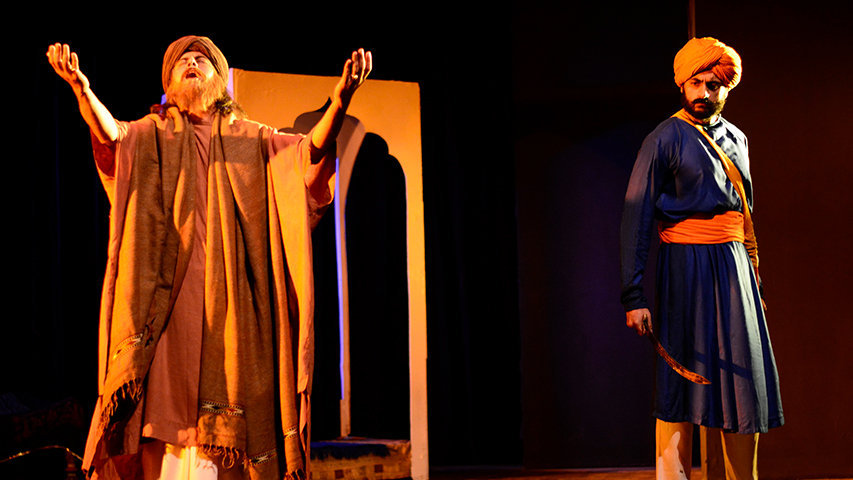
Theatre Festivals still in an Amorphous Stage in India
by Yash Saboo May 3 2018, 8:31 pm Estimated Reading Time: 2 mins, 39 secsGoing out on a weekend to watch a theatre play is not what comes to one's mind in India. Those who watch plays will agree with me that it truly is a magical experience. But it is an experience limited to a niche audience. There are Indian families with disposable incomes who are willing to spend on an evening out with the kids but their options are generally limited to movies and eating out. It is this attitude of people that needs to be changed.
In states like Maharashtra and Gujarat, commercial theatre is very popular and has its own dedicated audience. The Mobile Theatre of Assam is one of the most successful, urban, commercial theatre movements in the nation. Apart from being remuneratively viable for the artists, it also has opened up a gamut of possibilities in terms of technological innovation. Besides, various institutes like the National School of Drama, Nandikar etc. have moved with the times and have adopted a more varied approach to theatre in terms of allied careers like sound and light designing, apart from the usual academia of acting, direction and script writing.

Event FAQs
But there's also the fact that in India, festivals seem to lack vision and curatorial ambition. This year, Lucknow’s Repertwahr festival surprisingly programmed mostly works from Mumbai, while Hyderabad’s QABTF tried to mix it up with the staging of Bhakta Prahlada by an 80-year-old traditional Surabhi theatre group. The sheer numbers boasted by the Theatre Olympics—465 performances in 17 cities, with entries from 35 countries—spoke of quantity rather than quality.
Yet, there is hope. Recently, Mughal-e-Azam and Gandhi-The Musical, and now Disney’s Aladdin, all opened with long seasons of performances at Mumbai’s NCPA, and found numerous takers. It is the extravagance of these so-called Broadway-style spectacles, that is clearly a draw with audiences with deep pockets (ticket prices ride up to Rs 12,000). Seasons of this sort are de rigueur in the West, quite necessary to recover production costs, but in India, they cannot really take place across the board.
Last year, director Mohit Takalkar publicly voiced his discontent about how his theatre company, Aasakta, might have to shut shop because even in its hometown of Pune, where Takalkar has quite a standing, the attrition of audiences from opening night to the next makes it nigh impossible to sustain a play.
In India, the on-ground execution of travelling productions brings forth many challenges and inspirations. For instance, the management trainees manning the festivals with fresh-faced round-the-clock enthusiasm can find themselves at loggerheads with the staff of outmoded festival venues, accustomed as they are to old-fashioned bureaucratic methods and fixed work timings.
Theatre festivals are not accessible to all—the festival circuit is not really a network of deeply connected organizations, but rather a group of fiestas with their own agendas and sensibilities. They cater to demographics of choice, which, therefore, creates a niche audience. Given the few live entertainment options available to the production houses, sky is the limit in this industry.
Theatre is in a nascent stage – just coming into existence and beginning to display signs of future potential.




-173X130.jpg)

-173X130.jpg)
-173X130.jpg)

-173X130.jpg)
-173X130.jpg)
-173X130.jpg)